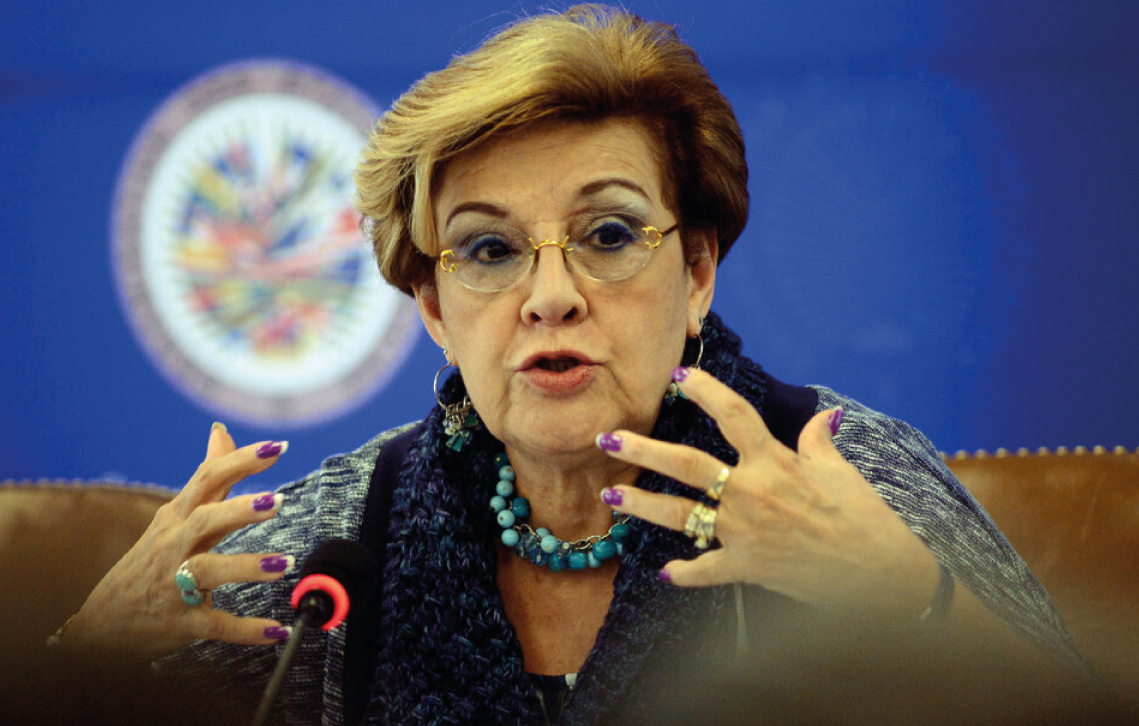After eight years at the Inter-American Commission on Human Rights (IACHR), Esmeralda Arosemena de Troitiño will retire on December 31, 2023. The Panamanian lawyer specialized in human rights was elected in 2016, served as Chair in 2019 and Vice-Chair between 2022 and 2023. She is also Rapporteur for Indigenous Peoples, Children and Adolescents, as well as Rapporteur for Mexico, Guatemala, Nicaragua and Venezuela.
After eight years at the Inter-American Commission on Human Rights (IACHR), Esmeralda Arosemena de Troitiño will retire on December 31, 2023. The Panamanian lawyer specialized in human rights was elected in 2016, served as Chair in 2019 and Vice-Chair between 2022 and 2023. She is also Rapporteur for Indigenous Peoples, Children and Adolescents, as well as Rapporteur for Mexico, Guatemala, Nicaragua and Venezuela.
Debates Indígenas: What is your assessment of the human rights situation in the continent?
Esmeralda Arosemena de Troitiño: I would like to begin by highlighting the progress made during these eight years of work. I believe that we have managed to position the Commission on priority issues related to the situation of the most vulnerable sectors of society. Based on the work of the IACHR, the jurisprudence established by the Inter- American Court and the development of the American Convention on Human Rights and its standards, I believe that we have strengthened the Inter-American System. It is crucial to use the tools available to ensure that States comply with their international commitments.
DI: And in the area of Indigenous Peoples?
EAT: Despite the limitations, I believe that we have made progress in clearly identifying the right to ownership of their territories from their own worldview. Although it continues to be a complex issue, this obligation has been discussed among the States. The American Declaration, together with other international instruments, provides us with a solid platform for the protection, guarantees and promotion of respect for Indigenous Peoples. However, there is always a risk of setbacks in the progress achieved and we must be vigilant.
DI: Despite the favorable regulatory framework for Indigenous rights, do you consider that there has been a regression of these rights?
EAT: I would say yes. Within the mandate of the IACHR, the Rapporteurship faces the major challenge of achieving recognition and effective respect for the autonomous decisions of Indigenous Peoples. Although this is recognized in political discourse, even in internal regulations, the transformation of these recognitions is a clear denial of the rights of Indigenous Peoples. In seeking to realize their rights, Indigenous Peoples are faced with a situation of denial, where other interests prevail. In the end, States tend to disassociate development from Indigenous rights. Currently, we are witnessing a frontal struggle between Indigenous Peoples and the States, with cases of criminalization, harassment and deaths of Indigenous leaders. It is a great challenge for the Commission to promote dialogue and to monitor, together with the States, compliance with the norms of the legal instruments, for which they are responsible for their effective enforcement and compliance.
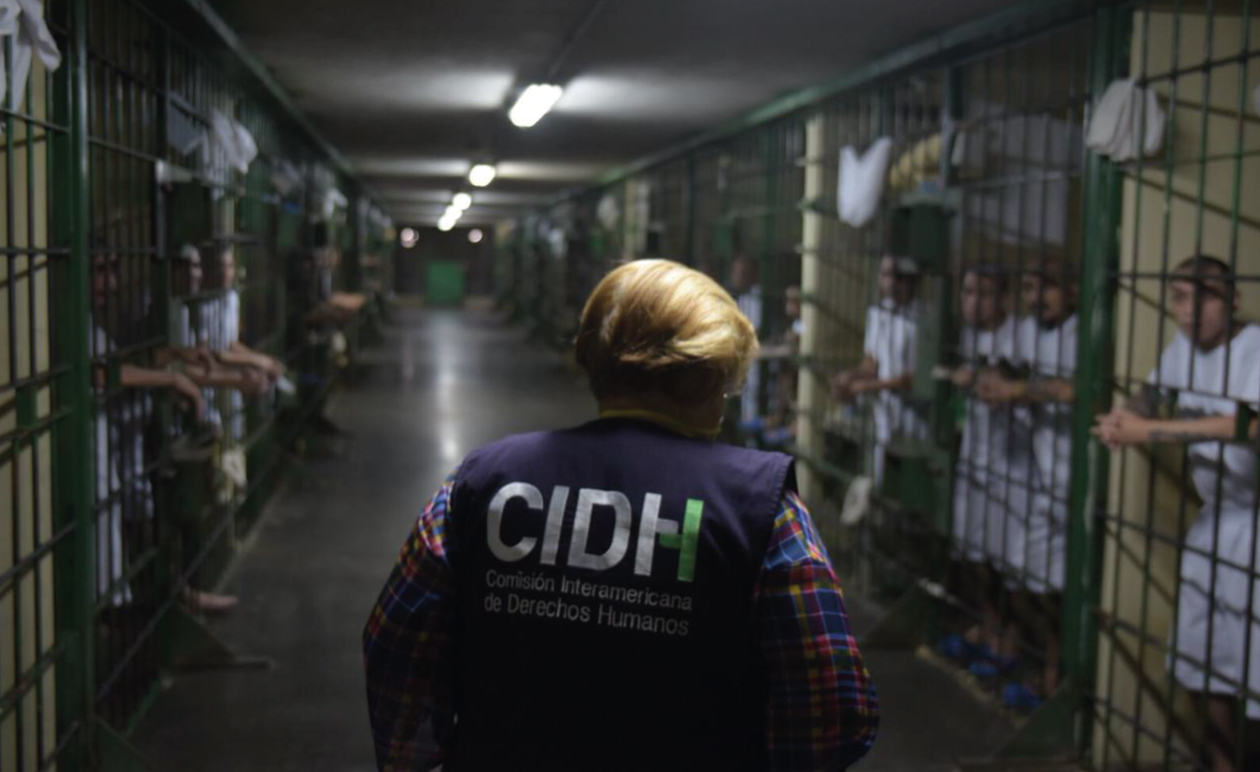
Esmeralda Arosemena de Troitiño in the maximum-security prison of Zacatecoluca (El Salvador) to verify the situation of persons deprived of liberty. Photo: IACHR
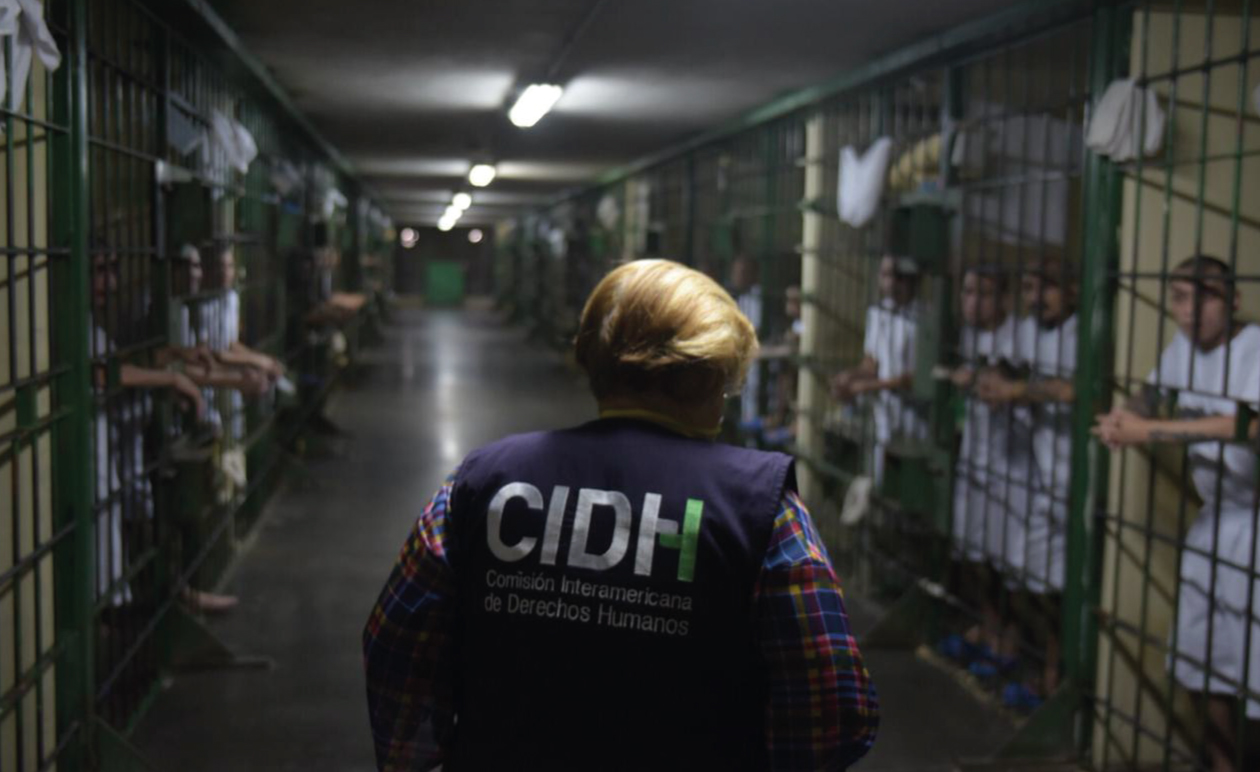
Esmeralda Arosemena de Troitiño in the maximum-security prison of Zacatecoluca (El Salvador) to verify the situation of persons deprived of liberty. Photo: IACHR
DI: What is the status of compliance with free, prior and informed consultation?
EAT: The issue of consultation and free, prior and informed consent is fundamental, and several States have completely different conceptions of the meaning and content of this right. As a result, the connection of Indigenous Peoples with their territories is limited in the face of the interests of power groups and the exploitation of resources.
DI: How is the link between States and Indigenous Peoples?
EAT: Rather than ignoring Indigenous rights, States choose not to respect them. That is why the IACHR promotes open, sincere and respectful dialogues between States and Indigenous Peoples. A common problem is that, within some States, there are sectors that make false claims, such as the supposed desire for independence of Indigenous Peoples that would affect State sovereignty. This is absurd and requires an open and respectful dialogue. It is essential that the States fulfill their commitments, and the Commission has tools such as precautionary measures, petitions and cases to support them. The identification of priorities and the development of prioritization criteria are key in this regard. In short, the Commission seeks to pursue a positive agenda with States, firmly identifying the responses they must provide in compliance with their own international norms and obligations. Governments must build on the strengths of their human communities.
DI: What about the power groups outside the State?
EAT: The influence of power groups, such as macro-criminality, which sometimes exceeds the power of the States themselves, only complicates the situation. The militarization of Indigenous territories, the lack of judicial responses to acts of violence against Indigenous leaders, and the need to strengthen democratic institutions and civil society are important challenges.
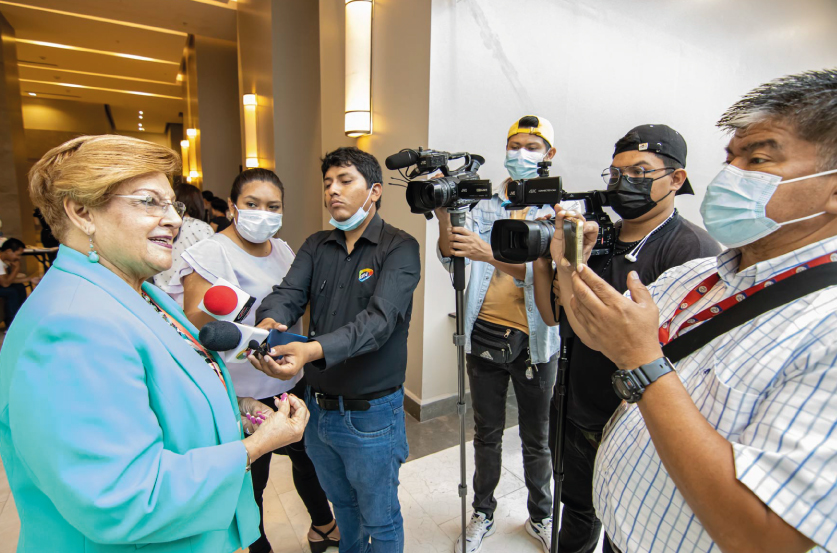
Esmeralda Arosemena de Troitiño during the Regional Seminar on the Right to Autonomy and Indigenous Justice in Santa Cruz de la Sierra (Bolivia). Photo: IWGIA
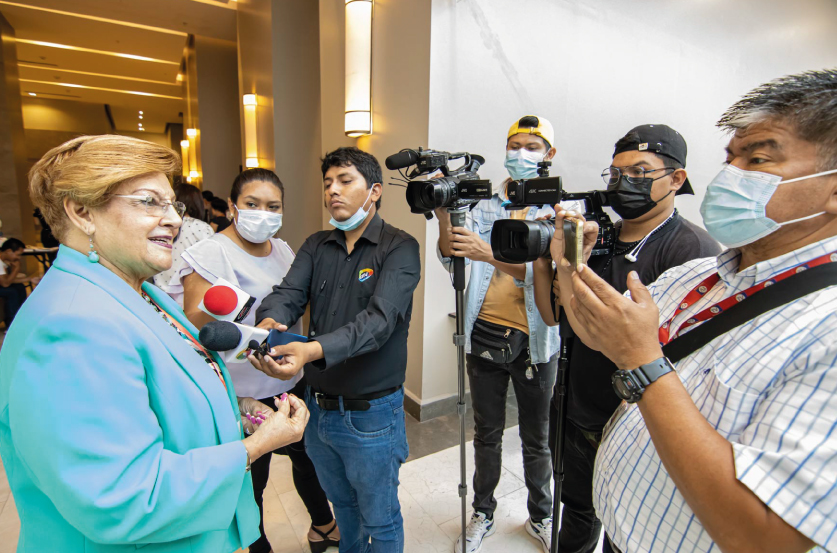
Esmeralda Arosemena de Troitiño during the Regional Seminar on the Right to Autonomy and Indigenous Justice in Santa Cruz de la Sierra (Bolivia). Photo: IWGIA
DI: A few weeks before the end of your term, how do you see the future of the Commission?
EAT: It is important that the Commission maintains a sense of institutional cohesion and respect for the institutionality of the IACHR. The members are part of a collective with adopted standards and a clear mission established by the Charter of the Organization of American States (OAS). The observance, defense, promotion and advancement of human rights must be the fundamental purpose of the Commission and its members. The development of thematic reports is a line that should be strengthened, since these documents are valuable for the States to understand the lines to develop specific rights. Reports, such as the one on the Right to Self-Determination and the recent one on Economic, Social, Cultural and Environmental Rights of Indigenous Peoples and Afro- descendants, should be used in dialogues with States to maximize their impact.
DI: What challenges will the Rapporteurship face?
EAT: These eight years have enriched my life in terms of the concept of humanity, the defense and promotion of human rights. The challenge is for Indigenous Peoples to be considered with absolute dignity and integrity of their rights, with a particular focus on non- discrimination for any cause. The focus must be on the most vulnerable sectors, ensuring respect for their dignity and avoiding exclusion, so that the full sense of humanity is preserved.
